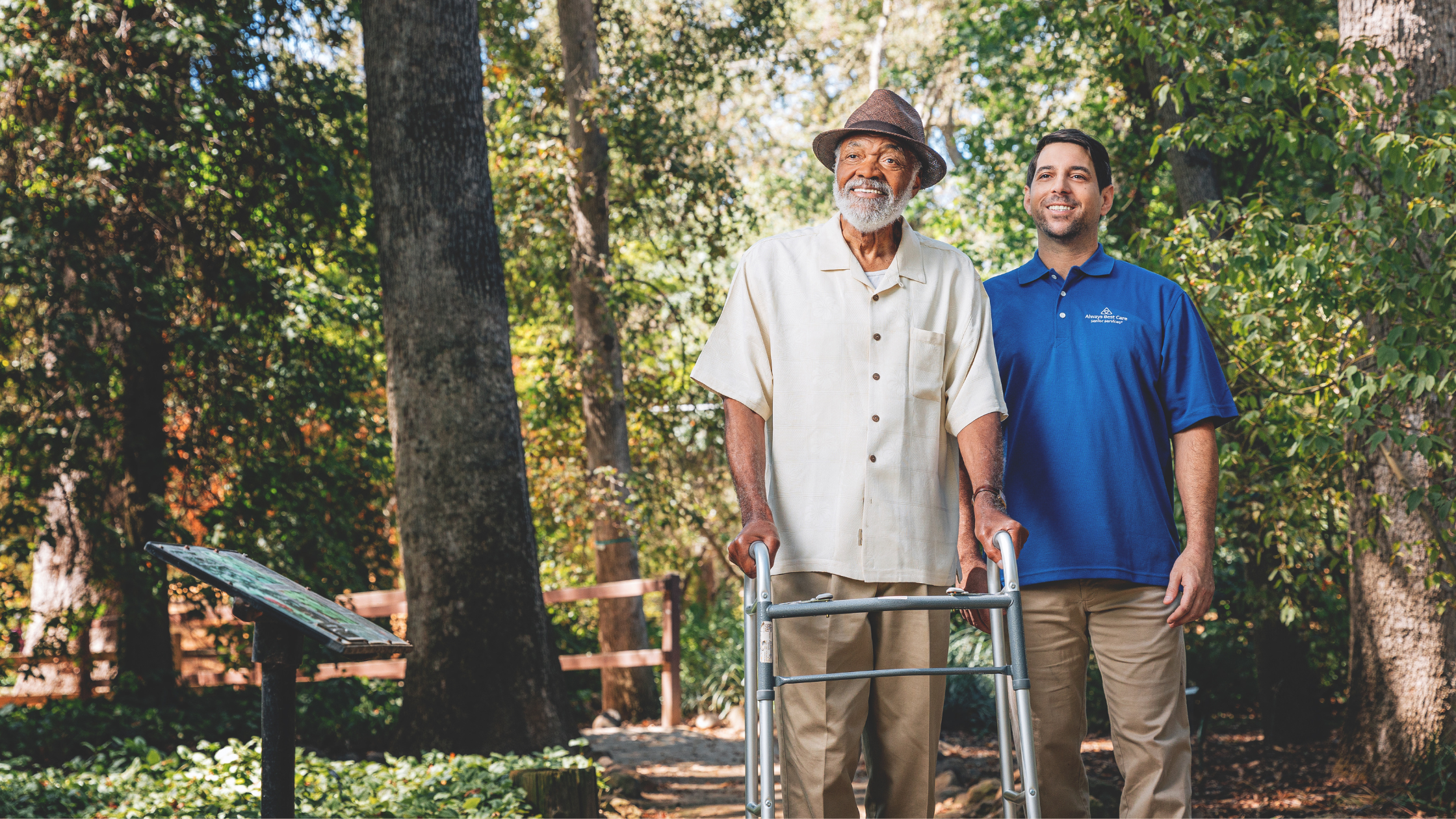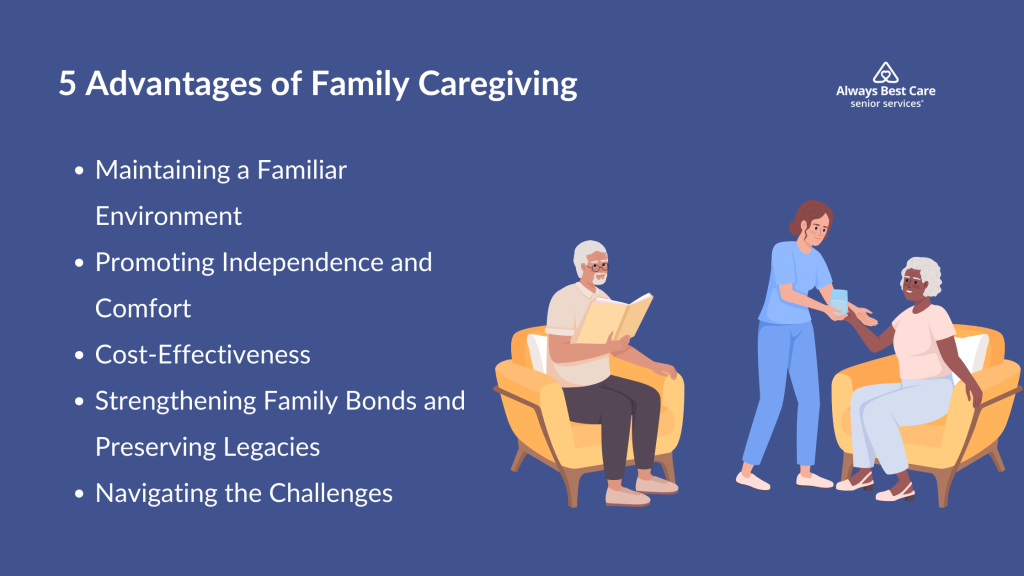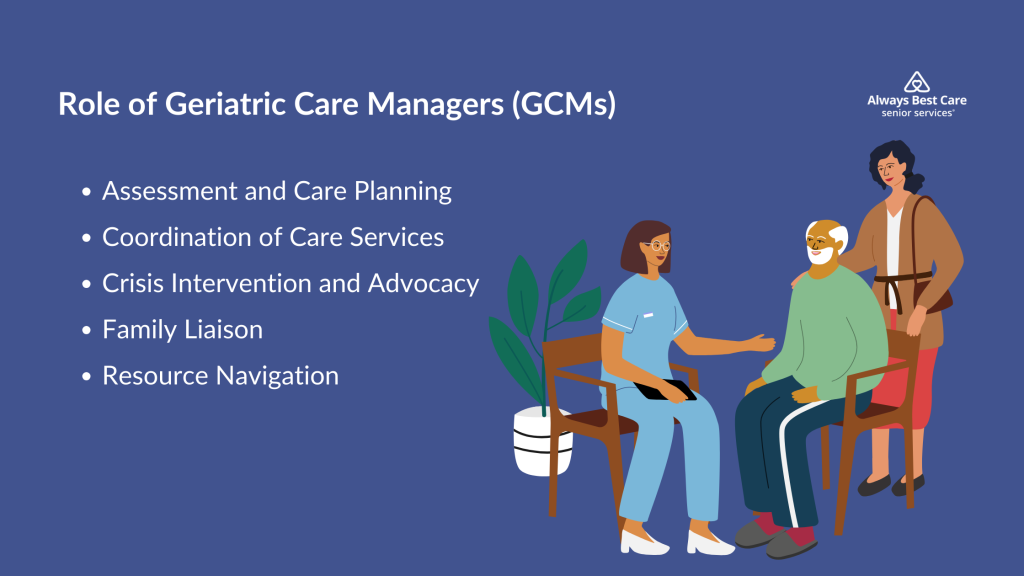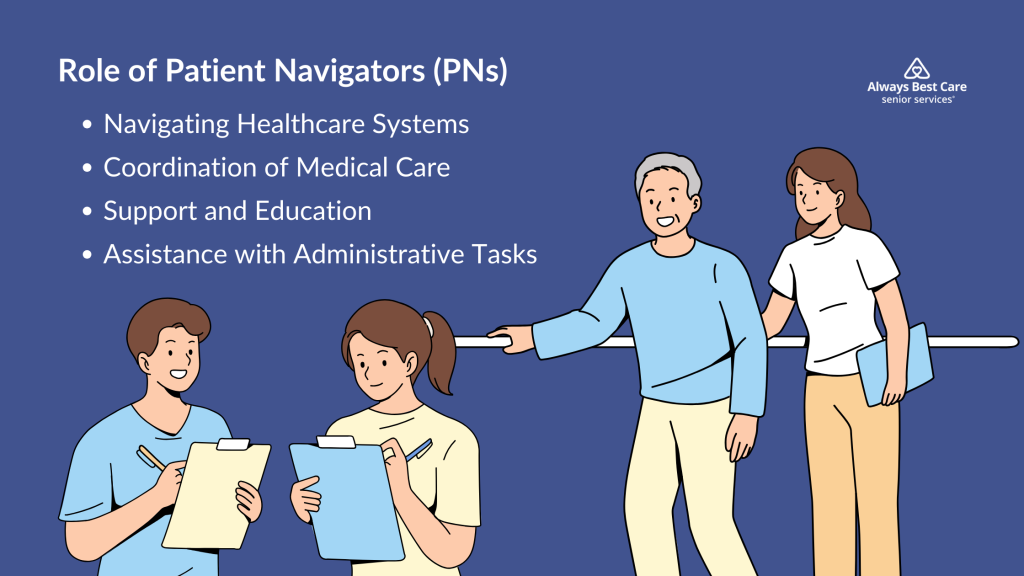Why Families Choose Always Best Care For Their Parents

When caring for aging parents, families often face complex challenges and decisions. The journey of elder care is marked by a unique blend of emotional, financial, and practical considerations, often leading families to seek the support of professional care services like Always Best Care.
Table of Contents
The Advantages of Family Caregiving

Family caregiving, while demanding, offers numerous benefits. It allows seniors to age in a familiar environment, maintaining independence and comfort. This approach can be less expensive than institutional care and provides a unique opportunity for familial bonding and the preservation of family legacies. However, as needs intensify, the limitations of family caregiving become apparent, particularly in situations involving dementia or physical limitations.
Maintaining a Familiar Environment
One of the most significant benefits of family caregiving is the ability for seniors to stay in a familiar environment. Aging in place, which often means remaining in their own home or living with a family member, can significantly contribute to a senior’s emotional and psychological well-being.
The familiarity of the surroundings can be exceptionally comforting, reducing stress and anxiety from moving to an unfamiliar setting, such as a nursing home or assisted living facility. This aspect is crucial for seniors with dementia, for whom familiar settings can help mitigate confusion and disorientation.
Promoting Independence and Comfort
Family caregiving allows seniors to maintain independence, pivotal for their self-esteem and mental health. Even with declining physical abilities, being in a home environment enables seniors to engage in daily activities and routines to the best of their ability. This sense of autonomy is essential for their happiness and can delay the decline often associated with full-time institutional care.
Cost-Effectiveness
From a financial standpoint, family caregiving can be more economical than the costs associated with institutional care. The expenses of senior living facilities, which often include charges for accommodation, medical care, meals, and other services, can be substantial.
In contrast, staying with family or in their own home can significantly reduce these costs. While there are still expenses like rent, mortgage, utilities, and home care assistance, they are lower than those incurred in full-time care facilities.
Strengthening Family Bonds and Preserving Legacies
Family caregiving offers a unique opportunity for familial bonding and the preservation of family legacies. It allows for sharing stories, traditions, and values, strengthening the emotional connection between generations.
Adult children and grandchildren can spend quality time with their aging loved ones, creating lasting memories. This closeness is beneficial for the seniors and the younger family members, who often find joy and fulfillment in giving back to the elders who once cared for them.
Navigating the Challenges
However, it’s essential to recognize the challenges that come with family caregiving, especially as the needs of the senior become more complex. In cases of advanced dementia or severe physical limitations, the demands of caregiving can exceed the capacity of family members.
This situation might require integrating professional care services to ensure that the senior’s needs are adequately met and to provide respite for family caregivers. The transition from family caregiving to professional care can be a critical step in maintaining the health and well-being of both the senior and their caregivers.
Partnering with Professional Care Providers
Recognizing the limitations of family caregiving, many families turn to professional care providers like Always Best Care. These services offer respite for family caregivers and ensure a comprehensive care approach tailored to the senior’s specific needs. Professional caregivers bring specialized training and experience, particularly in managing conditions such as dementia and Alzheimer’s, offering families peace of mind and the assurance of high-quality care.
The Role of Geriatric Care Managers and Patient Navigators
Families navigating the complexities of senior care often benefit from the expertise of Geriatric Care Managers (GCM) and Patient Navigators (PN). These professionals provide crucial guidance, from assessing the senior’s needs to coordinating care and managing various aspects of healthcare. They are a valuable resource, especially for families working care from a distance or facing complex health issues.
Role of Geriatric Care Managers (GCMs)

GCMs are trained professionals, often with nursing, gerontology, social work, or psychology backgrounds. Their specialization lies in addressing the challenges associated with aging and elder care. GCMs provide invaluable assistance in several key areas:
- Assessment and Care Planning: GCMs thoroughly assess seniors’ needs, considering their physical, psychological, and social requirements. They develop personalized care plans that address these needs while respecting seniors’ preferences and independence.
- Coordination of Care Services: GCMs manage and coordinate various services required by older adults, such as in-home care, medical appointments, and rehabilitation services. They ensure that the care provided is consistent and of high quality.
- Crisis Intervention and Advocacy: In times of crisis, GCMs provide immediate assistance, whether it’s a health emergency or a rapid change in the senior’s condition. They also advocate for seniors’ rights and ensure they receive appropriate and respectful care.
- Family Liaison: For families living far from their elderly loved ones, GCMs serve as critical communication links, providing regular updates and alerts about the senior’s condition and care.
- Resource Navigation: GCMs have extensive knowledge of local resources and services, helping families navigate the often complex landscape of elder care services and entitlements.
Role of Patient Navigators (PNs)

Patient Navigators, while similar to GCMs, often focus more on the healthcare aspects of senior care. Their role is especially vital in managing chronic conditions like diabetes, cancer, or Alzheimer’s. PNs assist in:
- Navigating Healthcare Systems: They help seniors and their families understand and maneuver through complex healthcare systems, explaining procedures and options and ensuring their healthcare needs are effectively met.
- Coordination of Medical Care: PNs assist in organizing medical appointments, arranging transportation, and ensuring follow-up care. They can be instrumental in maintaining communication between different healthcare providers.
- Support and Education: Patient Navigators provide emotional support to seniors and their families, educating them about medical conditions and treatments and helping them make informed healthcare decisions.
- Assistance with Administrative Tasks: They help with insurance forms, medical bills, and other administrative tasks that can be overwhelming for families.
Both Geriatric Care Managers and Patient Navigators play a critical role in enhancing the quality of life for seniors and easing the burden on their families. By providing expert guidance, support, and coordination, they ensure that the complex needs of older adults are met with compassion and professionalism.
Their involvement can make a significant difference in how families manage senior care, providing peace of mind and allowing them to focus more on caregiving’s emotional and relational aspects.
Personal Testimonials: The Impact of Quality Care
The real value of services like Always Best Care is often best understood through the experiences of those they serve. Testimonials from clients and their families consistently highlight the compassionate, comprehensive care provided. These personal stories underscore the importance of a service that extends beyond just meeting physical needs, touching lives, and holistically supporting families.
Choosing the proper care for aging parents is a significant decision. Services like Always Best Care stand out for their comprehensive approach, blending professional expertise with compassionate care. By understanding the benefits and limitations of family caregiving and the value of professional assistance, families can make informed decisions that best suit their needs and the well-being of their loved ones.
Connect with Always Best Care Today!
Always Best Care provides quality senior services tailored to your needs and abilities. Located at 45150 Club Dr, Indian Wells, CA 92210, United States, contact us today at (760) 848-0427 to schedule a care consultation and learn how we can assist you in safely and comfortably aging in place!
Resources:
- https://alwaysbestcare.com/resources/advantages-of-family-caregivers-in-senior-care/
- https://alwaysbestcare.com/resources/talking-to-family-and-friends-about-the-need-for-senior-care/
- https://alwaysbestcare.com/resources/seniors-care-much-family/#:~:text=Geriatric%20Care%20Manager,symptoms%20of%20dementia.
- https://alwaysbestcare.com/resources/seniors-care-much-family/#:~:text=Patient%20Navigator%20(PN,or%20healthcare%20administration
- https://alwaysbestcare.com/dallas/home-care/plano/#:~:text=TESTIMONIALS,five%20star%20company!!%E2%80%9D





